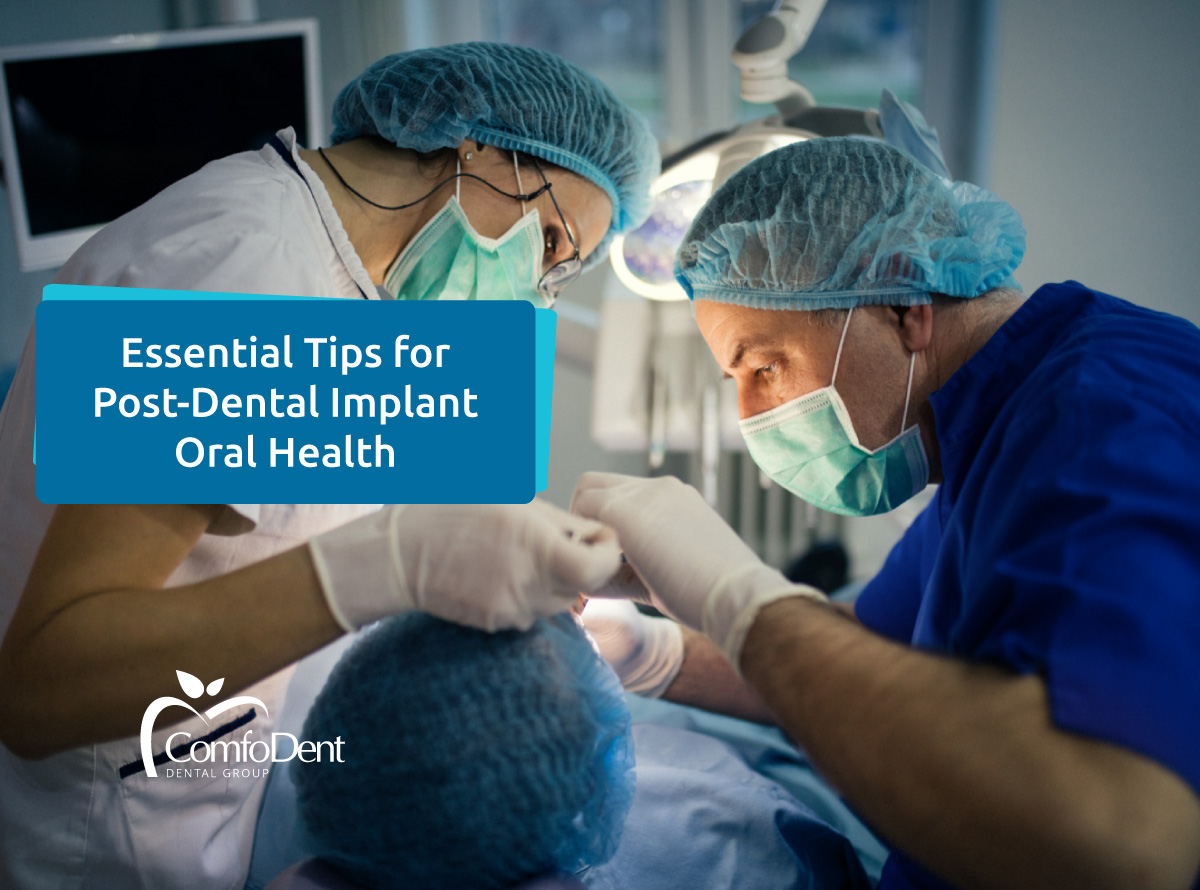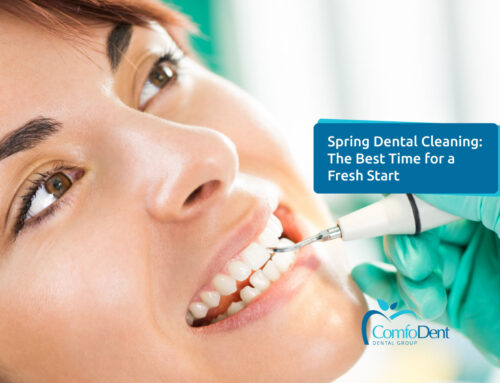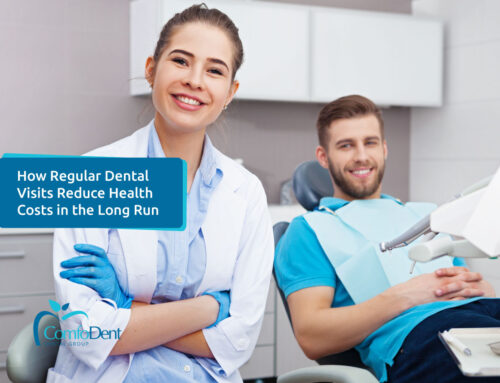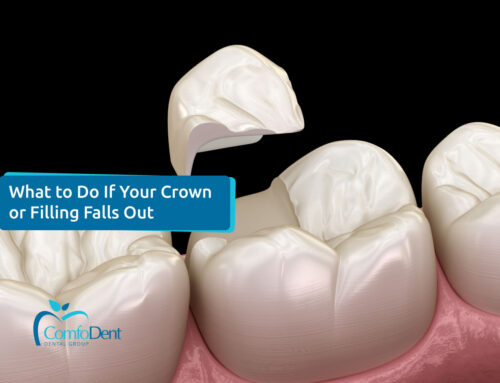Dental implants are an excellent solution for replacing missing teeth, offering durability, functionality, and a natural appearance. However, the success of your dental implant procedure doesn’t stop at the dentist’s office. Proper care and maintenance are critical to ensuring your implant remains in top condition for years to come. In this article, we’ll explore essential tips and strategies for maintaining optimal oral health after a dental implant procedure.
Why Post-Implant Care Is Crucial
Dental implants integrate with the jawbone through a process called osseointegration, creating a strong foundation for your replacement tooth. While implants are resistant to tooth decay, the surrounding gum tissue and bone require care to prevent complications such as peri-implantitis—a condition similar to gum disease that can lead to implant failure. Consistent dental care, proper oral hygiene, and regular check-ups are key to long-term success.
Immediate Care After Your Procedure
The first few weeks after your dental implant surgery are critical for healing. Follow these steps to promote recovery:
- Adhere to Post-Op Instructions: Your dentist will provide detailed instructions tailored to your procedure. These may include guidelines on oral hygiene, dietary restrictions, and medication. If your dentist prescribes antibiotics, be sure to take them as directed to prevent infection.
- Manage Discomfort: It’s normal to experience some swelling or discomfort after surgery. Use over-the-counter pain relievers as recommended and apply ice packs to reduce swelling.
- Stick to a Soft Diet: Avoid hard, crunchy, or sticky foods during the initial healing period. Opt for soft foods like yogurt, mashed potatoes, and smoothies to protect the implant site and support healing.
- Avoid Smoking: Smoking can impair healing and increase the risk of implant failure. If you’re a smoker, consider using this opportunity to quit.
- Maintain Gentle Oral Hygiene: Use a soft-bristled toothbrush to gently brush your teeth, avoiding the surgical area. Brushing and flossing are essential even during the healing time to maintain good oral hygiene. Your dentist may recommend a specialized mouthwash to reduce bacteria.
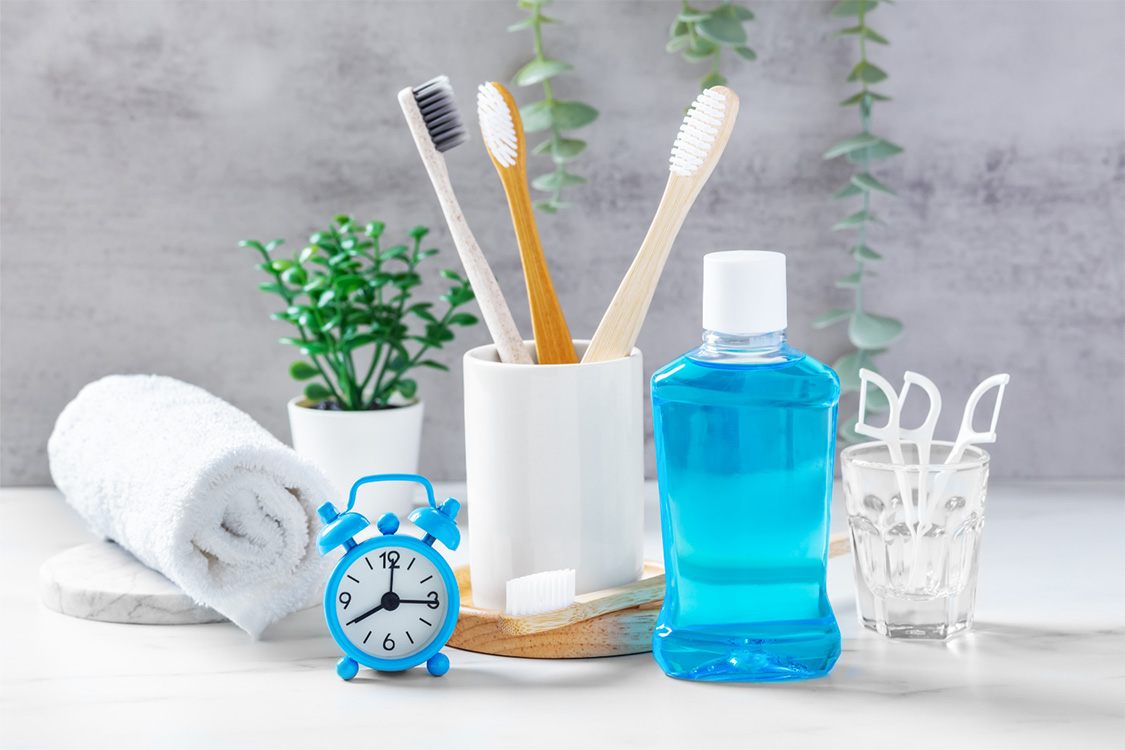
Long-Term Oral Care for Dental Implants
Once your implant has fully healed, maintaining a consistent oral hygiene routine is essential. Here’s how to care for your implant and overall oral health:
1. Brush Twice Daily
Use a soft-bristled toothbrush and non-abrasive toothpaste to clean your teeth and implant. Pay special attention to the gumline around the implant to remove plaque and prevent inflammation. Brushing your teeth regularly promotes good oral health and helps protect your teeth and gums.
2. Floss Regularly
Flossing helps remove food particles and plaque between teeth and around the implant. Consider using implant-specific floss, an interdental brush, or a water flosser for optimal cleaning.
3. Rinse with Antimicrobial Mouthwash
An antimicrobial mouthwash can help reduce bacteria and maintain healthy gums. Choose one recommended by your dentist to ensure compatibility with your implant.
4. Visit Your Dentist Regularly
Schedule regular check-ups and cleanings to monitor the health of your implant and surrounding tissues. Your dentist may use specialized tools to clean areas around the implant without causing damage. Regular dental care appointments are essential for detecting and addressing issues early.
5. Protect Against Bruxism
If you grind or clench your teeth (bruxism), your dentist may recommend a night guard to protect your implant and natural teeth from excessive pressure.
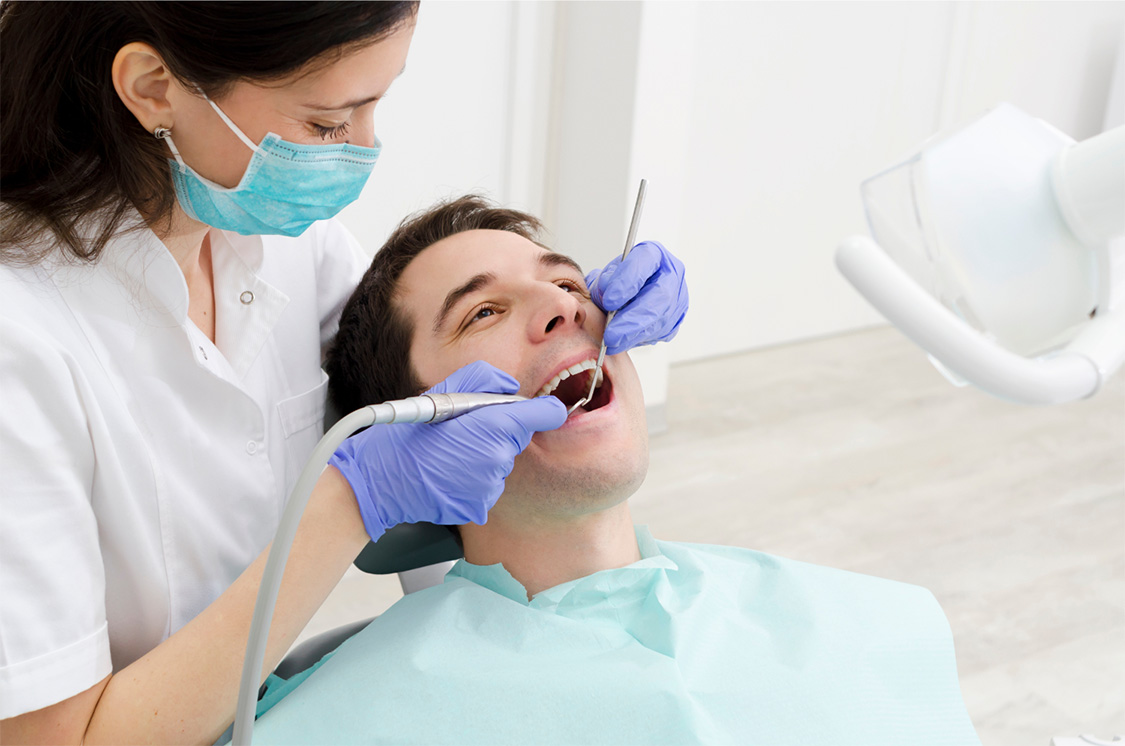
Recognizing and Addressing Potential Issues
Even with proper care, it’s essential to stay vigilant for signs of potential problems. Contact your dentist if you experience:
- Redness, swelling, or bleeding around the implant
- Persistent discomfort or pain
- Loosening of the implant or crown
Early intervention can prevent minor issues from becoming significant complications.
Lifestyle Tips for Implant Longevity
In addition to oral hygiene, adopting a healthy lifestyle can enhance the lifespan of your dental implant:
- Maintain a Balanced Diet: Consume foods rich in calcium and vitamins to support bone health. Soft foods can still be nutritious during the healing time and beyond.
- Stay Hydrated: Drinking plenty of water helps wash away food particles and bacteria, supporting good oral hygiene.
- Limit Sugary and Acidic Foods: These can contribute to plaque buildup, gum irritation, and tooth decay.
Healing Time and Patience
The healing time after dental implant surgery varies from patient to patient, typically ranging from a few weeks to several months. During this period, it’s essential to follow your dentist’s advice closely. Proper oral hygiene, a balanced diet, and avoiding habits that could disrupt healing, such as smoking, are critical to ensuring a successful outcome.
Preventing Infection After Surgery
Preventing infection is vital for a smooth recovery. Good oral hygiene, including brushing and flossing, helps minimize bacteria that could harm the surgical site. Be vigilant during the first 24 hours after surgery, as this is a critical period for avoiding complications. Follow your dentist’s guidance on cleaning the area and using prescribed mouthwashes or antibiotics.
Conclusion
A dental implant is a valuable investment in your oral health and quality of life. By following your dentist’s instructions, maintaining excellent oral hygiene, and adopting a healthy lifestyle, you can enjoy the benefits of your implant for years to come. Remember, good oral health requires ongoing effort. If you have any concerns or need additional guidance, don’t hesitate to reach out to Comfodent Dental Group. Our team is here to support you every step of the way, ensuring your smile stays healthy and radiant.

